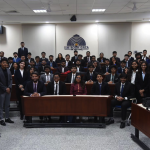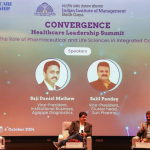Let’s be honest. Hiring is expensive. According to research estimates, it takes no less than $4,700 to hire an individual (Taylor, 2020). What’s more, the cost can increase three to four times depending on the job profile. To put the cherry on top—or let’s say charcoal on top—with increasing workforce fluidity, HR departments in organizations are struggling to battle the dreaded demons of absenteeism and attrition. The number of employees quitting is increasing every year, with seventy percent of employees showing no engagement in their jobs (Bureau of Labor Statistics, 2009).
Let’s consider a scenario. Henry Prakash is an employee at Racebook, a cutting-edge ed-tech startup founded by two IIT alumni in 2021 to help students with their academic ambitions. Henry was one of the first to be hired, and after seven grilling rounds—ending with an hour-long chat with the founders—things started off well. He significantly contributed to the company’s social media growth. Under his leadership, their YouTube channel scaled to 521k subscribers in less than two years. However, three years later, the startup is facing challenges. With the entire industry facing a winter, Racebook is no different. Offline platforms are booming again, and funding has slowed.
Henry submitted his resignation to HR a week before the company planned to launch a new program for the upcoming board exams. As per policy, the exit interview was conducted. A few startling things emerged. The company had anticipated that Henry’s exit was due to the cash crunch it was facing. However, during the interview, it came to light that Henry didn’t feel his individual efforts were being recognized. The company’s values and plans were not aligning with his personal beliefs. Racebook was planning to bring in AI-powered mentors for their students. Henry believed that one-on-one tutoring was essential and that AI should not be used for direct mentoring.
It became clear that Henry was facing emotional dissonance because his values did not align with those of his organization. It wasn’t the money but the feeling of dissatisfaction that made him leave. Henry also informed HR that he had chosen to stay with the organization for a few months after the AI plans were announced, hoping the company would consider asking its valued employees about their thoughts on Racebook’s future. As a result, he chose the passive-constructive path of being loyal for a while. Ultimately, the dissatisfaction only exacerbated, and Henry quit.
The above case illustrates the critical role that stay interviews can play in organizations today. Unlike exit interviews, which come too late to take corrective action since the employee is already gone (Branham, 2005), stay interviews offer a proactive approach. Stay interviews allow employers to open a dialogue with their employees. Through the exchange of information, they can identify the pain points and address them before employees start looking for other jobs (Finnegan, 2012). Through active listening to employees, gauging their morale and acting on their feedback, organizations can reduce the likelihood of resignations, as we saw in the case of Henry.
Stay interviews are an active process compared to employee engagement surveys, providing supervisors and HR with instantaneous feedback from the employee. Applying expectancy theory, by being able to gauge employees’ expectations, leaders can effectively optimize rewards and align them with employees’ personal goals, giving them motivation to stay. Exit interviews are taking an exit and stay interviews are here to stay!
Author: Ashray Gupta
About the Author: Student of MBA-10
References
- Bureau of Labor Statistics. (2009). Job openings and labor turnover survey. United States Department of Labor. https://www.bls.gov
- Branham, L. (2005). The 7 hidden reasons employees leave: How to recognize the subtle signs and act before it’s too late.
- Taylor, S. (2020). The cost of hiring and retaining employees. HR Review. https://www.hrreview.co.uk
- Finnegan, R. P. (2012). The power of stay interviews for engagement and retention. Society for Human Resource Management.
#enlightningiim #iimbodhgaya #interviews
#humanresource #employees



